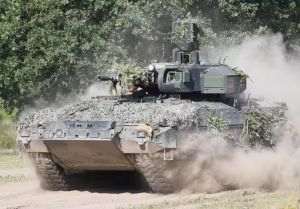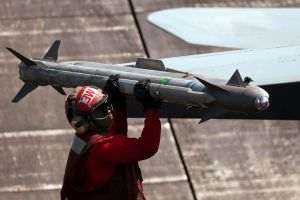Iran's hopes in the crystallization of a coalition as large as possible against Israel on the occasion of the extraordinary meeting of the foreign ministers of the 57 member states of the Organization for Islamic Cooperation (OIC), an event that took place yesterday in Jeddah, in Saudi Arabia, were dashed. drastically diminished after the inaugural speech of Hussein Ibrahim Taha, the Secretary General of the respective international institutions.
According to the press release posted on the OIC website, the secretary general of the organization called on the UN Security Council to take responsibility and take the necessary measures to force Israel, the occupying power in Gaza, to respect international law and stop the threats and attacks that endanger regional and international peace and security. Hussein Ibrahim Taha calls on the UN Security Council to impose an immediate and comprehensive end to the Israeli aggression in the Gaza Strip, in order to avoid the escalation of the situation in the area and a possible war in the Middle East region, which would undermine the security and stability of the entire area.
The Secretary General of the OIC argued that the authorities in Israel must be forced by the international community to implement the UN resolutions and implement the provisions of the International Court of Justice regarding the cessation of hostilities in the Gaza Strip, and that those guilty of war crimes should be brought to justice .
Although in his speech Hussein Ibrahim Taha strongly condemned the war crimes and genocide in the Gaza Strip and the West Bank, as well as the assassination of Ismail Haniyeh, the former leader of the Hamas group, he did not call for an urgent armed intervention, but asked the international community to engage in the search for political solutions to end the current situation and establish peace based on the two-state solution (Israel and Palestine) in accordance with the UN General Assembly resolutions.
In his speech, the OIC Secretary General stated that since October 8, 2023 until now, the Israeli army has killed more than 40,000 Palestinians, injured more than 91,000 people, most of whom are women and children, and destroyed in the Gaza Strip and the West Bank more than 430,000 properties, resulting in nearly 2 million Palestinians becoming homeless.
The killing of Hamas political leader Ismail Haniyeh risks turning the Middle East into a "wider conflict that could involve the entire region," said Mamadou Tangara, the foreign minister of Gambia, the OIC president. He added that Haniyeh's assassination "will not stifle the Palestinian cause, but rather amplify it, underscoring the urgency for justice and human rights for the Palestinian people."
For his part, Ali Bagheri Kani, Iran's interim foreign minister, stated during the meeting that Israel was supported by the US in the assassination of Hamas leader Ismail Haniyeh. Kani criticized the decisions of the UN Security Council because it refuses to respect and implement the resolutions of the General Assembly regarding Israel and the Middle East area. Iran's acting foreign minister said the Organization of Islamic Cooperation must act in place of the UN Security Council and reiterated firm support for the cause of Palestine and an independent state. Ali Bagheri Kani emphasized the importance of unity among Islamic countries in the face of the Israeli regime, which he accused of being the main cause of insecurity and instability in the region. In this context, the acting Iranian foreign minister spoke about the need for Islamic countries to support Iran's right to defend itself against any act of aggression, stating that the actions of the authorities in Tehran are aimed at protecting national sovereignty and security, as well as ensuring stability and security the whole region.
The OIC was founded in 1969 and consists of 57 member states, 48 of which are Muslim-majority. The organization claims to be the "collective voice of the Muslim world" and works to "defend and protect the interests of the Muslim world in the spirit of promoting international peace and harmony."
At yesterday's meeting, views were divided on supporting Iran, as at previous meetings in April 2024 and November 2023, as many of the small Arab states do not look kindly on an expansion of the influence of the authoritarian, dictatorial regime in Tehran in the Islamic world.
Also yesterday, in Ankara, Turkish Foreign Minister Hakan Fidan met with the ambassadors in Turkey of the states that are members of the Arab League, with whom he discussed the situation in the Middle East and what needs to be done to de-escalate the current escalation of the conflict in the Strip Gaza and the West Bank, according to the Daily Sabah newspaper. The participants in the meeting affirmed that it is necessary for the international community to order a cessation of hostilities in that area and to initiate a dialogue leading to the implementation of the two-state solution - Israel and Palestine.
According to Al Arabiya daily, US intelligence officials said yesterday that Iran will wait until Thursday or Friday, or even the weekend to attack Israel, but it is unclear what the scale of the attack will be and whether it will be carried out in a manner coordinated with the Houthi rebels and the groups Hamas and Hezbollah, formations supported financially and militarily by the regime in Tehran. US officials cited by Al Arabiya said they are confident they can defend Israel against an Iranian attack, even if it will be more intense than the one on April 13-14, but a prolonged conflict with Hezbollah in Lebanon is seen as incredibly worrisome , due to its massive arsenal of missiles and drones alongside its proximity to Israel.
According to experts cited by the Jerusalem Post and The Times of Israel websites, it is possible that the authorities in Tehran ordered the attack to take place on Tisha B'Av, a fast day in the Jewish religion, which begins in the evening of August 12 and ends in the afternoon of August 13, and which is the day established by the prophet Zechariah to commemorate the destruction of Solomon's Temple by the Babylonians led by King Nebuchadnezzar, and later was added over time the commemoration of the destruction of the Second Temple by Roman soldiers under Emperor Titus. Experts say an Iranian attack on this day would have a strong meaning among Israelis.
On the other hand, a number of experts from the Western world, quoted by the Israeli and Arab media, say that the authorities in Tehran have not yet decided the date of the attack, because they fear that a large-scale attack could trigger a war with Israel, which would have unpleasant consequences for the Iranian autocratic regime. They say that popular discontent with the political regime has long simmered in Iran and that a deployment of Iranian forces in a war with Israel would weaken domestic repression forces, which could lead to a popular uprising in Tehran.
By the time the attack is actually launched, all scenarios are possible. It remains to be seen which of these will materialize and whether that attack will trigger a new conflict in the Middle East. (George Marinescu(
Iran has advantages in terms of human resources and ground equipment, but in the event of an armed conflict, Israel compensates with technological superiority, especially in aviation and air defense, as indicated by data from Global Firepower, which supports the following presentation. This balance of power suggests that the war would likely be dominated by aerial exchanges and long-distance attacks, considering the geography and strategy of each country.
• Overall Military Strength
In the 2024 Global Firepower rankings, Iran ranks 14th, while Israel ranks 17th (Global Firepower) (DW). These positions reflect significant differences in the resources and military capabilities of each country.
• Human Resources
Iran has a larger total military personnel. It has approximately 1,925,000 available military personnel, including reservists and paramilitaries, while Israel has about 670,000 military personnel, including active and reservists.
• Air Forces
Israel has a clear advantage in aviation. Israel owns 612 military aircraft, of which 241 are fighter jets, compared to Iran, which has 551 aircraft and 161 fighter jets. Additionally, the quality of Israeli aircraft is superior due to advanced technology and constant maintenance, while the Iranian fleet is outdated due to international sanctions.
• Ground Forces
In terms of ground forces, Iran has a significant numerical advantage. Iran owns 3,709 tanks and 8,577 armored vehicles, compared to Israel, which has 1,870 tanks and 6,670 armored vehicles. However, the quality and modernization of Israeli equipment can compensate for this numerical disadvantage.
• Naval Forces
Israel's naval capabilities are relatively limited compared to those of Iran. Iran owns 102 ships, including 29 submarines, while Israel has 67 ships and no submarines. However, Israel compensates with advanced technology and strategic alliances.
• Defense and Attack
Israel has focused its investments on advanced air defense systems, such as the Iron Dome, David's Sling, and Arrow, to counter Iranian missile and drone attacks. At the same time, Israel is developing strong offensive capabilities to carry out effective counterattacks.
• Economic Impact of an Armed Conflict Between Iran and Israel
The economic impact of an armed conflict between Iran and Israel, supported by their respective alliances, would be significant and have repercussions regionally and globally. Here are some of the main economic effects:
1. Energy Price Increases
- Oil Market: Iran is one of the world's major oil producers. A conflict could disrupt oil exports from the region, likely leading to increased prices in international markets.
![Iran - in search of political solutions; a comparison between his military strength and that of Israel]()
- Natural Gas: Similar to oil, natural gas exports could be affected, impacting global prices and supply.
2.Disruption of Trade Routes
- Strait of Hormuz: About 20% of the world's oil passes through this strait. Any blockage or disruption would have severe consequences for international trade flows and energy prices.
- Suez Canal: Although less directly involved, any instability in the region could affect traffic through this essential canal for global trade.
3. Instability in Financial Markets
- Stock Market Volatility: Investors might react negatively to the uncertainty and risks associated with an extended conflict, leading to stock market declines and increased volatility.
- Safe-Haven Assets: In times of conflict, investors tend to turn to assets considered safe, such as gold and government bonds of stable countries. This could drive up the prices of these assets.
4. Impact on Local Economies
- 2Iran and Israel: Both countries will suffer direct economic losses due to military costs and infrastructure destruction. Israel's economy, dependent on technological exports and tourism, will be severely affected.
- Neighboring Countries: Countries in the region, such as Lebanon, Jordan, and the Gulf States, are likely to suffer significant economic impacts due to instability and refugees.
5. Humanitarian and Reconstruction Costs
- Refugees: A conflict could lead to a wave of refugees, putting pressure on the resources of neighboring countries and the international community.
- Infrastructure Repair: Post-conflict, the costs of rebuilding destroyed infrastructure will be enormous, requiring long-term investments and international support.
6. Effects on Global Trade Relations
- Sanctions and Embargoes: A conflict is likely to lead to the imposition of additional economic sanctions and embargoes on Iran and possibly even its allies. This could affect global supply chains and trade relations.
• Conclusion
Although Iran has advantages in terms of human resources and ground equipment, Israel compensates with technological superiority, international support, and a much larger defense budget. These differences suggest that a conflict would be complex and damaging for both parties, with costly repercussions for the countries in the region as well as disrupting the global economy. The findings highlight the importance of avoiding war and finding diplomatic solutions to maintain peace in the region, in addition to the humanitarian tragedy that would accompany the war.
• Information Sources
These data were collected from several reliable sources, including World Population Review, DataPandas, InvestingNews, and Global Firepower, which compile information from various databases and annual reports of international energy agencies (World Population Review) (Global Data and Statistics | Data Pandas) (INN) (Wikipedia) (Global Firepower).


























































